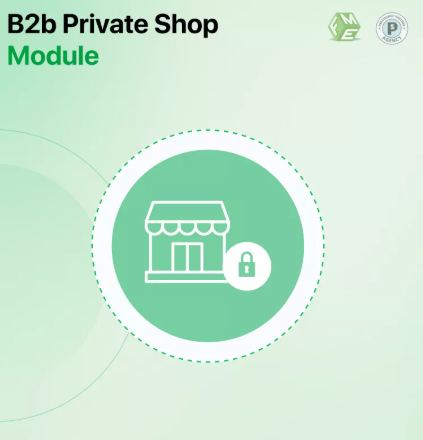In the mobile-first era of e-commerce, protecting access to your online store content has become more than just a feature—it’s a necessity. Many businesses are now creating restricted stores to better serve wholesale clients, B2B customers, or exclusive product members. One of the most efficient ways to do this is by setting up a prestashop private shop that only registered or approved users can access.
Private shops allow e-commerce owners to gate their catalog, hide pricing, and deliver a curated experience for selected customers. But simply restricting your shop is not enough; the module you choose should provide seamless functionality and mobile optimization.
With the massive shift towards mobile traffic, your PrestaShop module must prioritize responsive design. Users accessing your store on smartphones and tablets expect flawless performance, intuitive layouts, and instant interactions.
The ideal prestashop private shop module will support login walls that adapt to different screen sizes. Whether it’s a popup or a full-page redirect, the design should be clean, simple, and fast-loading to ensure a positive first impression.
A strong module includes robust access control features. You should be able to decide whether the restriction applies to the entire store, specific categories, or just selected products. Granular control makes it easy to personalize access based on user groups or registration status.
Login and registration flow should also be customizable. Look for modules that allow admin approval of new users, add custom registration fields, or even integrate CAPTCHA to prevent spam signups. This level of control makes your shop safer and more professional.
An underrated but essential feature is content visibility management. The module should let you hide product prices, add-to-cart buttons, and descriptions unless a user is logged in. This keeps sensitive information protected while encouraging account creation.
Redirect options are also vital. When users try to access restricted content, they should be directed to a login or registration page, not just shown a 404 error. Smart redirecting enhances usability and keeps your bounce rate low.
Mobile compatibility of these redirects cannot be overstated. Ensure the module you choose has responsive templates so that login pages look and function well across smartphones, tablets, and desktops.
Another useful feature is role-based access. For B2B stores, it’s critical to assign users into different groups (e.g., resellers, VIPs, distributors) and serve different products, pricing, or promotions based on their role.
The ability to integrate with PrestaShop’s default customer groups and rules makes the module even more powerful. This ensures your private shop functions well within the platform’s existing structure.
Customization is key to branding. Modules should allow you to modify login forms, welcome messages, or error pages to reflect your store’s look and feel. This creates consistency and builds trust with new users.
Speed optimization is another important factor. Private modules can slow down your store if they’re poorly coded or overly complex. A good module uses lightweight scripts and supports caching for faster performance on mobile devices.
Support for multi-store setups is a bonus. If you’re running multiple PrestaShop storefronts, your private shop module should allow you to manage access rules across all your stores from a single dashboard.
SEO configuration matters too. While your restricted content won’t be indexed, landing pages or registration forms still can be. Make sure the module allows you to set meta tags, headings, and descriptions to help your pages rank.
GDPR compliance is a must-have. Any module collecting user information should offer options for privacy policy links, cookie consent banners, and secure data handling mechanisms to comply with regional regulations.
Analytics integration is useful for tracking user behavior. See how many visitors attempt to access restricted content, who registers, and where drop-offs happen. This data helps refine your strategy and improve conversions.
Email notification customization is another benefit. Send welcome emails, approval confirmations, or alerts when accounts are pending. Personalized email workflows help maintain user engagement and automate communication.
Look for regular updates and compatibility with the latest PrestaShop versions. A well-maintained module will reduce the risk of conflicts or bugs, and ensures it keeps up with new web standards, especially for mobile responsiveness.
Documentation and support cannot be overlooked. Choose a module with clear setup guides, FAQs, and reliable customer service. This will save you time during implementation and ensure smoother maintenance.
Trial or demo versions are great for testing before you buy. Check if the module provider offers a sandbox or demo store so you can evaluate features and compatibility before committing.
Language support may be relevant if you cater to international users. Your private shop module should support multilingual setups, which is a built-in feature of PrestaShop, but not always available in third-party modules.
Compatibility with other essential PrestaShop modules is important. For example, you might use a gift card system or product customization tool—your private shop module should not interfere with these.
In the end, the goal is to create a responsive, secure, and intuitive experience for your selected customer base. By prioritizing these features, you ensure that your private shop operates smoothly and efficiently, even on mobile devices.
To truly succeed in this mobile-first era, your prestashop private shop setup must go beyond just hiding content. It should be a well-optimized ecosystem that uses a feature-rich prestashop private shop module to provide exclusivity, speed, and seamless user interaction across all platforms.


 :
: